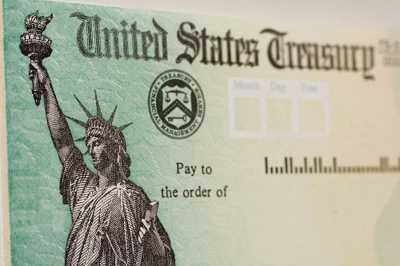 NEW YORK: The US 30-year Treasury yield slipped on Wednesday, approaching record lows, in a scramble for long-dated bonds on worries about sluggish global growth and bets on more unconventional stimulus measures from major central banks.
NEW YORK: The US 30-year Treasury yield slipped on Wednesday, approaching record lows, in a scramble for long-dated bonds on worries about sluggish global growth and bets on more unconventional stimulus measures from major central banks.
Yields on other Treasury maturities edged up as investors reduced bond holdings on a rebound in stock and commodity prices for a second day following a rout triggered by Britain's stunning vote to leave the European Union.
The yield on the 30-year, or long, Treasury bond fell to 2.247 percent earlier Wednesday before ticking up to 2.253 percent, which was down 2 basis points from Tuesday.
The long bond yield was about 3 basis points away from its all-time low of 2.221 percent struck on Jan. 30, 2015, according to Reuters data.
"It's a symptom of the flight to safety. People are also forced to go out the curve to get yield," Thomas Roth, head of US Treasury trading at Mitsubishi UFJ Securities USA in New York, said of the persistent bid for the long bond.
US Treasuries also appeal to European and Japanese investors who face negative yields at home due partly to the current bond purchase programs by the European Central Bank and Bank of Japan, analysts said.
The safe-haven buying in reaction to the Brexit vote last Thursday increased the global total of sovereign debt with negative yields to $11.7 trillion as of Monday, up $1.3 trillion from the end of May, Fitch Ratings said on Wednesday.
Possible repercussion from Britain's exit from the European economic bloc has led some traders to think the Federal Reserve would not raise interest rates in 2016 and would consider cutting rates if US economy were to deteriorate.
Late Tuesday, Fed governor Jerome Powell said Brexit had shifted global risks "to the downside," potentially posing a new threat to the Fed's outlook.
The central bank downgraded its view of the US economy earlier this month following surprisingly weak May payrolls.
Data on other sectors suggested the US economy is struggling to improve following an anemic first quarter.
On Wednesday, a private report showed pending homes fell 3.7 percent in May, which was more severe than forecast, while consumer spending managed to rise for a second month.
In early trading, benchmark 10-year Treasuries were little changed in price with a yield of 1.460 percent, while two-year Treasury yield was up nearly 1 basis point at 0.621 percent.


























Comments
Comments are closed.